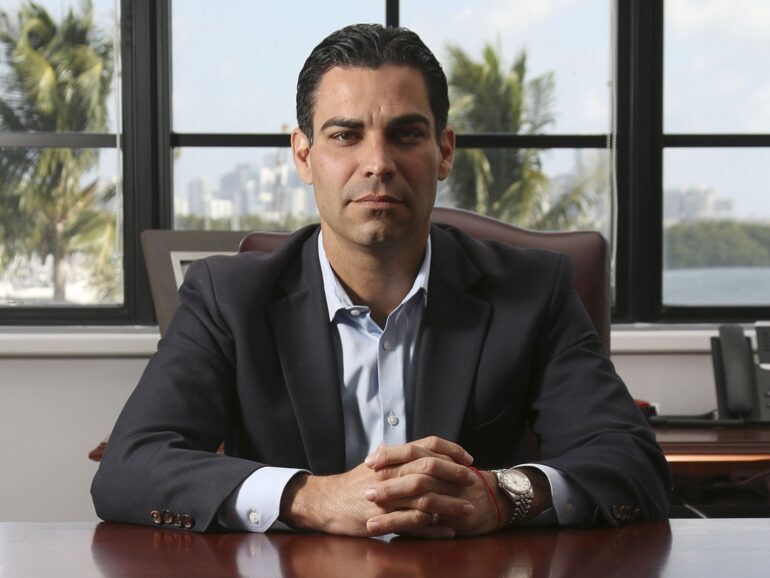TL;DR:
- Miami Mayor Francis Suarez’s super PAC introduces an AI chatbot for his Republican presidential campaign.
- The chatbot utilizes VideoAsk, a product by Typeform, to match user questions with video responses featuring an AI avatar of Mayor Suarez.
- It directs users to relevant video segments instead of providing immediate answers.
- The AI chatbot joins a growing trend of 2024 candidates using generative AI tools in their campaigns.
- AI tools have advanced significantly, enabling faster and cheaper creation of multimedia content.
- However, experts caution about the potential misuse of AI-generated content for disinformation in elections.
Main AI News:
In a bold move that epitomizes the evolving landscape of political campaigns, a super PAC supporting Miami Mayor Francis Suarez’s bid for the Republican presidential nomination has introduced an artificial intelligence (AI) chatbot. This groundbreaking development showcases the increasing prevalence of generative AI tools in the 2024 presidential race.
Unveiled on Wednesday by SOS America PAC, the AI chatbot harnesses the power of VideoAsk, a cutting-edge product developed by Typeform, a renowned software company specializing in recruitment and sales. This innovative tool allows users to pose questions to the chatbot, which then matches them with video responses featuring an AI-powered avatar designed to resemble and sound like Mayor Suarez.
Greeted by the chatbot’s unmistakable AI persona, “Hi, I’m AI Francis Suarez,” users are invited to explore Mayor Suarez’s proven agenda for economic prosperity, fiscal responsibility, and strong support for law enforcement. With its non-human, yet eerily human-like mouth movements, the chatbot offers its assistance: “So, how can I help?“
VideoAsk’s website highlights its capability to create interactive “video funnels,” guiding visitors through distinct pathways based on their inquiries and allowing them to craft their own unique adventures. Consequently, instead of immediately responding to a user’s specific question, the chatbot deftly directs them to a video segment within Suarez’s comprehensive platform.
For instance, when prompted about Mayor Suarez’s stance on immigration, the chatbot initiates a concise 55-second video entitled “Mayor Suarez’s Miami Model.” This engaging clip delves into a wide range of topics, including Miami’s economic prosperity, unemployment rates, job creation, homicide rates, and homelessness.
However, when queried about Mayor Suarez’s support for former President Trump as the GOP nominee, the chatbot takes an unexpected turn. Introducing itself as “AI Ron DeSantis,” a computer-generated caricature resembling Florida’s governor emerges, humorously diverging from the topic. AI DeSantis expresses Suarez’s dedication to revitalizing America’s economy and supporting law enforcement, while playfully suggesting that “the single greatest threat to American families today” is none other than “Mickey Mouse—yes, Mickey Mouse—run for your lives!“
Notably, some questions stump the chatbot, leading to a humble admission: “Sorry, I did not understand…“
Mayor Suarez’s AI chatbot is just one example among several instances where 2024 candidates are harnessing the power of generative AI tools to innovate their campaign strategies. Just last month, DeSantis’ campaign released a captivating video on social media, employing AI-generated images to depict former President Donald Trump sharing a heartfelt embrace with infectious disease expert Dr. Anthony Fauci.
In April, the Republican National Committee made waves by releasing a dystopian campaign ad solely composed of AI-generated images, offering a glimpse into a future shaped by the potential consequences of President Joe Biden’s re-election.
While artificial intelligence has long played a role in political campaigning, recent advancements in AI tools have revolutionized the speed, cost-effectiveness, and accessibility of generating original images, videos, and text. While these tools undoubtedly streamline mundane tasks and fuel creative advertising endeavors, experts caution that they can also facilitate the creation of persuasive disinformation, posing a significant threat to the integrity of elections.
As the 2024 presidential campaigns continue to push boundaries, Mayor Suarez’s AI chatbot represents a remarkable milestone in the integration of AI technology into the political arena. This visionary application sets a precedent for future campaigns, cementing AI’s pivotal role in shaping the landscape of modern political discourse.
Conclusion:
The launch of an AI chatbot for Mayor Suarez’s presidential campaign demonstrates the increasing adoption of generative AI tools in the political market. This development highlights the potential of AI to personalize user interactions and convey campaign messages effectively. With AI technology continually improving, political campaigns and marketers must navigate the fine line between leveraging these tools’ advantages and guarding against the spread of misinformation and disinformation.

